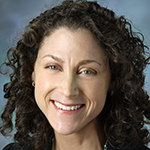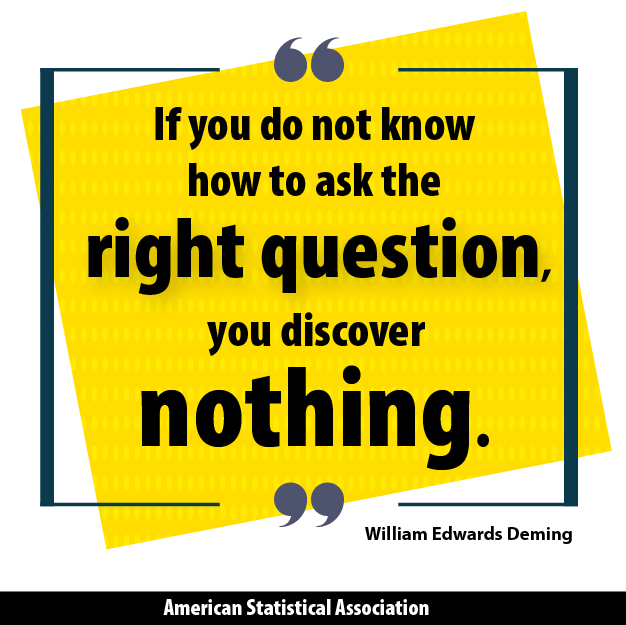 Rochelle E. Tractenberg, PStat®, is an associate professor in the department of neurology at Georgetown University. She earned her PhD from the University of Maryland, College Park, in measurement, statistics, and evaluation. Contact her at rochelle.tractenberg@gmail.com.
Rochelle E. Tractenberg, PStat®, is an associate professor in the department of neurology at Georgetown University. She earned her PhD from the University of Maryland, College Park, in measurement, statistics, and evaluation. Contact her at rochelle.tractenberg@gmail.com.
“I regard the lost opportunities—specifically bad science—as unethical.” — John Bailar
“Bad statistics makes bad research, and bad medical research is not ethical.” — Doug Altman
I did not become a statistician to advocate for “good science,” but as I prepare to celebrate my 20th year as both a scientist and a statistician, I have come to the same conclusion as John Bailar and Doug Altman: Bad research and bad science are unethical.
Throughout my career, I have consistently advocated for good science and transparency in my roles as grant reviewer, journal reviewer and editor, and instructor and mentor (and collaborator). I joined the ASA’s Committee on Professional Ethics (COPE) in 2013 and became the committee chair this year. I was also engaged in the revision of the ASA Ethical Guidelines for Statistical Practice, which the board of directors endorsed in May of 2016, and I plan to spend my time as COPE chair helping our profession—and all those who engage in data analysis—understand how and why these guidelines can support and strengthen the role and visibility of the statistician, analyst, and data scientist.
This advocacy probably will not be a top, or even a top 20, priority for the beginning statistician. However, in the current “post-truth” era, I think integrity and professionalism have an increasing importance. Beyond avoiding misconduct, which is a natural top priority for all statisticians at all career stages, encouraging and advocating for good science through appropriate and transparent statistical analysis can be pursued. If this seems weighty, I would argue that the heft of this obligation makes the data analyst stronger and adds a substantive dimension to the statistician as a collaborator and partner in the scientific enterprise.
An initiative Rochelle Tractenberg is planning for her tenure as the ASA’s Committee on Professional Ethics (COPE) chair is to collect, standardize, and make available case studies for statisticians and data analysts to use as they teach or familiarize themselves with the ASA’s ethical guidelines. She invites all statisticians and data scientists to consider contributing a case for this effort. The standardization of cases will have the following two key features:
1. It will align each case with at least one of the case types described by the National Center for Case Study Teaching in Science (NCCSTS), with particular attention given to incorporating at least one—preferably two—of the ASA’s ethical guideline principles or sub-elements.
2. It will make every case fully anonymous so no individual, group, or agency/institution can be identified (by name, practice, or other indirect method). COPE seeks to create accessible resources that instructors and mentors at all levels can use to introduce, and provide practice with, the ASA’s ethical guidelines. (Contributors may consider submitting their cases directly to NCCSTS, although their primary responsibility is not to use cases to teach ethics per se.)
Submissions should be sent to rochelle.tractenberg@gmail.com with “ASA GUIDELINES CASE STUDY: LASTNAME.dd.month.yy” in the subject line. Depending on the rate of submissions, COPE may create a working group to explore how well the 2016 guidelines revision handles the cases submitted. Since COPE will be revisiting the 2016 revisions in 2021, any unmet challenges that arise from these cases will be incorporated into the 2021 revision.
Tractenberg points out that economics, with neither guidelines nor professional guidance, is also lacking this straightforward mechanism for the evolution of what it means to be an economist. She does not anticipate statistics and data science will reach the level of accreditation and integration of ethical guidelines engineering has achieved, but she hopes to more fully engage practicing data analysts in the familiarization with and cultural embedding of the ASA Ethical Guidelines for Statistical Practice.
The American Association for the Advancement of Science’s (AAAS) 2017 annual meeting was held in Boston February 16–20 with the theme, “Serving Society Through Science Policy.” I organized a session to highlight the crucial ways ethical professional practice is essential to promoting ethical policy and decision making.
Specifically, the 2017 AAAS theme announcement stated, “Policies both within and outside science should be informed by the best available evidence.” As a biostatistician and sometimes patient, I know evidence-based medicine is contingent on good science; medicine, like science and policy, should be based on the best available evidence. This is as true today as it was 38 years ago when Altman noted, “Medical research is one of the main foundations of medical knowledge, influencing diagnosis and treatment, so research which is badly designed or misleading analyses may lead to wrong diagnostic or therapeutic decisions and so put patient health or even lives at risk.”
The session I organized featured three disciplinary perspectives. We first heard from engineering, which has professional ethical guidelines that are required content in every accredited degree program. Richard Maudslay, an elected fellow of the Royal Academy of Engineering and chair of the Ethics Working Group—which is part of the Engineering Council— discussed the working group and Royal Academy’s efforts to create, maintain, and disseminate this training.
I was the next speaker, and I presented the ASA Ethical Guidelines for Statistical Practice. My presentation outlined the origins and contents of our ethical guidelines, but contrasted with the engineering perspective in terms of the nonrequirement and nonaccreditation of statistics courses or programs throughout the United States—and, subsequently, the lack of requirement that our guidelines be integrated into quantitative training at any level.
Finally, George DeMartino, an economics professor at Denver University, brought this perspective from economics: no guidance and no guidelines. One dramatic difference between economics and engineering and statistics is a longstanding and active resistance—from across practitioners at all levels and in all industries where economics are used—to the notion that such guidelines are needed or could be useful for economists. Another important distinction between economics and engineering and statistics is whether ethical guidelines are a required part of the degree-granting preparation. Engineers and statisticians can actually say, “I’m sorry, but what you’re asking or suggesting is not part of what it means to be a professional.” That is, with no ethical code or professional guidelines of any sort, economists can be asked—ordered—to construct an analysis conforming to a decision that has already been made. This may happen to an engineer or a data analyst, but individuals in these professions at least have the opportunity to push back.
After the presentations, we had a lively discussion with the AAAS 2017 audience—moderated by Andrew Gelman, an active advocate for ethical statistical practice—about the importance of professional guidelines for the profession, for the reliability of results arising from the hard and careful work professionals across these disciplines do, and for the protection and empowerment of the practitioners. Gelman is a tenured professor of statistics at Columbia University.
I organized this session to bring these perspectives into alignment, but participating also made me appreciate the hard work the ASA COPE did to get the guidelines codified in 1995. I saw how important it is to share these guidelines as widely as possible and engage those who analyze data in doing good science. I have committed my time as COPE chair to disseminating the ASA’s ethical guidelines and integrating them into the culture of practicing statistics and data science.
I appreciate the sense in which this added dimension to the study and practice of data analysis may seem “heavy,” but I also believe the ASA’s ethical guidelines promote a sense of professionalism not widely available across careers or career tracks. For example, before I became a biostatistician, I was a cognitive scientist. Ethics training was limited to, and entirely focused on, treating human subjects in psychology and cognitive experiments ethically. My obligations to the profession, science, and other cognitive scientists were never mentioned. Each of these obligations is specifically discussed in the ASA’s ethical guidelines.
As a biostatistician working mainly in neurology and neuropsychological applications, I have also read through the ethical guidelines for other disciplines. Those of the Society for Neuroscience, for example, almost exclusively relate to publishing. Since publishing is a tiny part of what professional neuroscientists do, these guidelines cannot promote engagement in our professional development (of ourselves, our mentees/students, or our collaborators) as actively as the ASA’s ethical guidelines do for statisticians and data scientists.




Leave a Reply